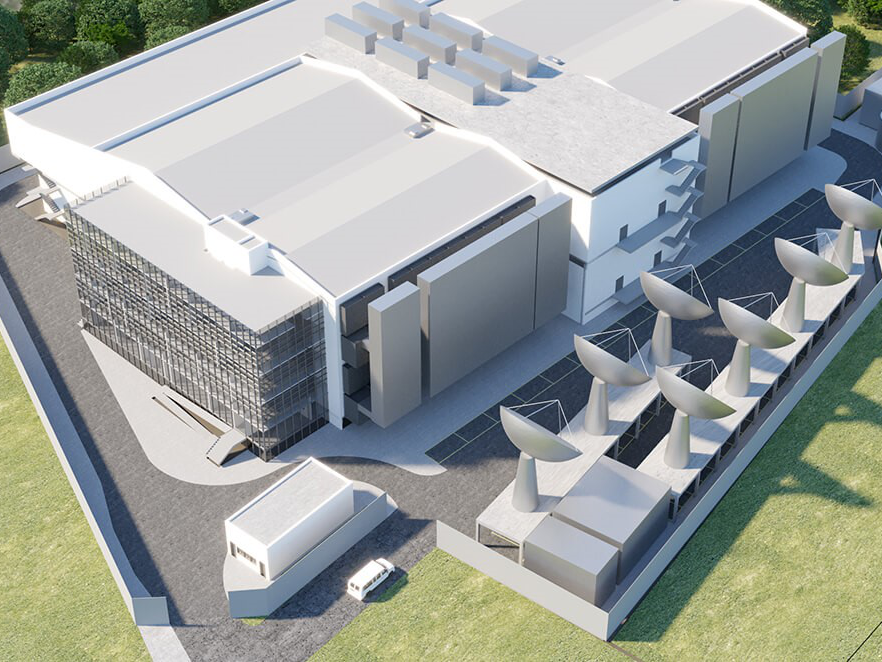
Delivering Sustainable Outcomes at Rack Centre, Nigeria
Actis’ investment in Rack Centre Limited (“Rack Centre”) comprised of the acquisition of a majority share in the leading carrier-neutral data centre in Nigeria; one of the most underserved markets in the world but with enormous potential for expansion.
To expand the IT load from 750kW to 13MW sustainably, Actis is combining its experience in the sustainable real estate and energy sectors, to minimise the environmental impacts and deliver long-term transformational social impact.
Sustainable design
Rack Centre applies cutting-edge technology and design criteria to maximise the energy and water efficiency of the expanded data centre ensuring it meets the increasing sustainability demands of customers.
Rack Centre is forecast to be 35% more energy-efficient than other regional data centres and 16% more energy efficient than the global average. Water consumption will be reduced by 41% and there will be a 45% reduction in the embodied carbon of materials used in construction.
Our sustainable design philosophy, coupled with Actis’ status as an official IFC EDGE champion, which means we have been recognised by the International Finance Corporation and other business leaders as endorsing the green building standards established by the EDGE certification, led to a collaboration with the IFC EDGE team and the development of the first sustainability standard dedicated to assessing the design and resource efficiency of data centres in growth markets.
Actis’ proactive implementation of sustainable design principles has seen Rack Centre become the first IFC EDGE certified data centre in Africa, Middle East and Europe and the second globally.
Whilst energy efficiency is paramount for sustainable data centres, so too is delivering a reliable yet low carbon sources of power to ensure uninterrupted operations. At the outset of Actis’ investment an assessment was undertaken to identify the best technically and commercially feasible low-carbon power solution.
Constraints on space for onsite renewables and an unreliable, carbon intensive power grid meant that converting from diesel to gas power generation was identified as the most sustainable option. The conversion is estimated to save more than $10million/year of operating costs and will avoid over 4,500 tonnes/ year of carbon emissions.
Social impact
Construction work will create approximately 300 jobs whilst the headcount of Rack Centre’s Operations Team will double. The direct and indirect jobs created by our investment will support the achievement of United Nations Sustainable Development Goal 8, which has an objective to “promote sustained, inclusive, and sustainable economic growth, full and productive employment, and decent work for all”.
This is a timely creation of employment opportunities given Nigeria’s estimated 20% increase in unemployment due to the pandemic, according to the National Bureau of Statistics and the United Nations Development Programme.

To further deepen the social impact and help combat inequalities, Actis and Rack Centre are assisting local people in Lagos to gain the requisite skills to participate in the country’s growing digital economy.
Demand for digital skills training in Africa will surge in the coming decade as more and more jobs, that did not require digital skills previously, will demand digital literacy.
Given the urgent need for digital skills training in Africa, Actis and Rack Centre have developed a “Skills to Employment Program”, which will recruit up to 170 lower-middle-income young people in Lagos to participate in a digital skills development program.
The objective of the program is to provide students with the skills to take advantage of the post-Covid employment opportunities and access jobs in the new digital world.